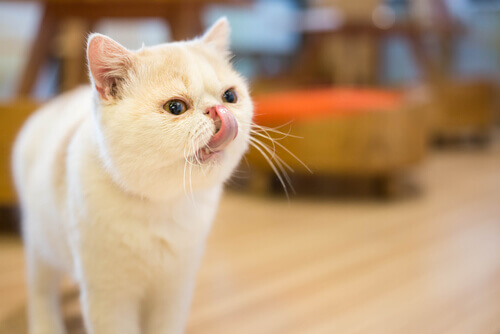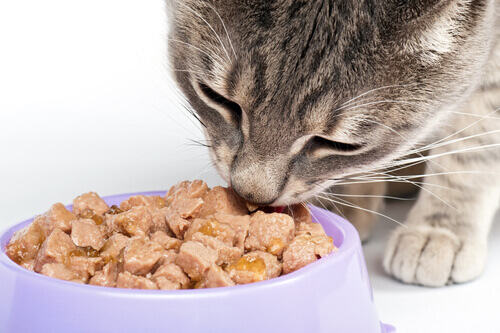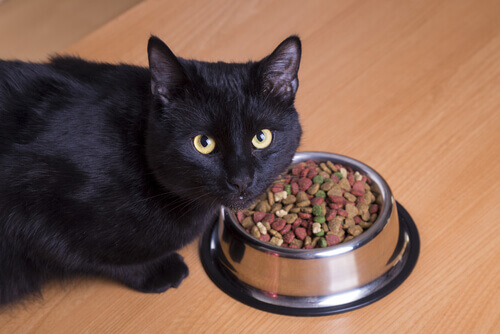What's the Best Food for Shorthair Cats?

Shorthair cats are natural predators, so feeding them is a delicate issue. If you don’t understand this you might think your feline is just a picky eater. So what’s the best food for shorthair cats?
If you’re giving your cat food other than meat, or food that’s processed from meat products, you may have difficulty getting your shorthair cat to eat properly.
What should a shorthair cat eat?
Never forget that shorthairs share recent ancestry with the fiercest felines: lions, tigers, jaguars, etc. Keep this in mind when feeding your shorthair cat.
You’ll never see an adult lion in the wild eating an apple or drinking milk. Nor will you see a leopard cub in the wild drinking milk from a cow, or any other animal for that matter. As ridiculous as these examples are, that’s exactly the way a lot of people feed their shorthair cats.
If you do this too, don’t be surprised if your feline goes hungry. They don’t eat the same things as dogs or humans. They rarely deviate as regards their nutrition, and, as an owner, you should always keep that in mind.
Shorthair cats need to eat a lot of meat for its fat and protein content. If humans ate like them, we’d have serious health problems at a young age.

Shorthair cats don’t eat like humans, and neither do they eat like small dogs. It’s actually not uncommon for people to treat shorthair cats like dogs, who can eat a variety of different foods and stay healthy.
If a domestic shorthair is very heavy it’s likely because they were fed a diet high in carbohydrates. This puts them at risk for diabetes. The shorthair cat’s digestive system isn’t designed for carbohydrates, and so they shouldn’t be fed them.
What’s the best food for shorthair cats?
The ideal diet for shorthair cats is specified by the American Association of Feed Control Officials (AAFCO). If you follow their guidelines you’ll ensure that your shorthair cat is getting the right nutrition.
Don’t pay any attention to advertising terms such as gourmet, natural, super-premium and premium, as there are no guidelines that define these terms. Ask your vet what food (wet or dry) he or she recommends for your shorthair cat.

Once you’ve made your choice, let your shorthair cat do a taste test. If they eat it with no problems, and seem to enjoy it, it’s a great choice. But, if they don’t like it, you need to be prepared to offer other options.
Shorthair cats will often go on hunger strike rather than eat something they don’t like, and these strikes are obviously detrimental to their health. If your feline ever does decide to go on a hunger strike, they’re at high risk of liver failure or death.
If you choose to change foods, introduce the new food slowly and in small amounts over about a week. This will help prevent the shorthair from rejecting the new food, and also decreases the risk of upsetting your pet’s stomach.
Portion sizes, feeding time and snacks.
Do shorthair cats need to eat a lot? Well, that depends on a few factors. For example, is your shorthair an indoor or outdoor cat? Has it been spayed or neutered? Both answers are critical in determining your cat’s nutritional requirements.
The best thing to do is to ask your vet for more information to help you decide on the best weight and daily calorie allowance for your shorthair. Take the initiative and ask your vet about your kitty’s ideal weight and food.
Once you find out how much food your shorthair cat needs, don’t get sidetracked. It may not seem like enough, but it will keep your cat at an ideal weight. It’s hard for shorthair cats to lose weight once they become obese.
Plan their meals. They like to eat throughout the day, so it’s best to leave the food out, accessible all the time. You can give them half in the morning before leaving for work and half in the evening. Don’t let treats affect their nutrition.